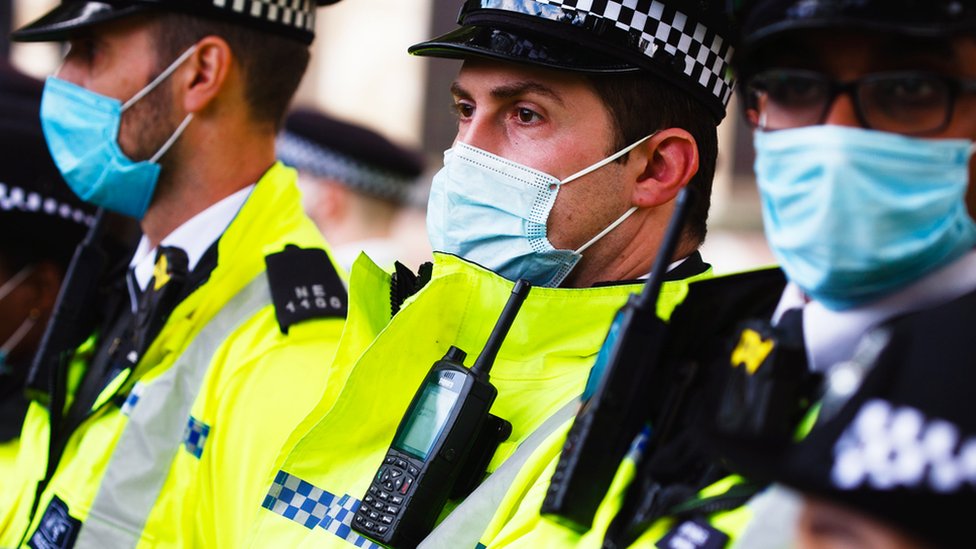Can the Government Force You to Be Tested?
Fri 11:32 am +01:00, 5 Feb 2021
There follows a guest post by Dr John Fanning, Senior Lecturer in Tort law at the University of Liverpool, addressing the worrying prospect of forced testing for COVID-19.
The Department of Health announced this week that it will deploy door-to-door “surge testing” in parts of England to “monitor and suppress” the spread of the South African variant of COVID-19. This “testing blitz” will apply in Bristol and Liverpool and in specified postcode areas in the East of England (EN10), London (W7, N17, CR4), the North West (PR9), the South East (ME15 and GU21) and the West Midlands (WS2). Residents over the age of 16 in these target areas will be asked to take a COVID test, regardless of whether they have symptoms. Liverpool’s return to the naughty step is particularly irksome: it is the second time in three months that the city has hosted a mass asymptomatic testing programme. Last time, the results cast doubt on claims that the city had a serious problem: of the 108,304 asymptomatic people tested in Liverpool between November 6th and 26th 2020, 703 tested positive for COVID-19 – or 0.6%. This time, health officials in Liverpool and in other “surge” areas will ask residents to take a test, perhaps even on their doorstep, to “come down hard” on the new variant.
All this raises an interesting question: if a health official knocks on your door, do you have to be tested? As things stand, it doesn’t appear so. In general, anyone who “inflicts” unlawful force on another person commits the tort of battery (Collins v Wilcock [1984] 1 WLR 1172), sometimes also known as a “trespass”. Any form of bodily contact exceeding the jostling of (normal) everyday life will qualify as a trespass; e.g. a punch in the face, an unwanted kiss, a swab forced up the nose, and so on. What makes the “infliction” of force lawful is the presence of the other person’s consent. This is why a doctor must be sure that she/he has a patient’s consent before beginning a medical examination or administering treatment – without it, she/he will be acting unlawfully. In spite of the Health Secretary’s gung-ho rhetoric and the impression cultivated by the media, the mass testing programme seems ultimately to rely on the consent of its participants: the Department of Health “strongly encourages” people in the target areas to participate and talks of tests being “offered” to those who must leave their homes for essential reasons. The Government evidently prefers the ‘carrot’ approach, perhaps fearing the optics of a scheme buttressed by compulsion. Mercifully, the prospect of being wrestled to the ground as a local authority functionary forces a swab down your throat remains – at least for now – the stuff of libertarian nightmares.
The problem is that the Government does have a “big stick” at its disposal in the form of the Coronavirus Act 2020. Schedule 21 to that Act contains powers that the state can deploy against “potentially infectious persons”; i.e., those who are, or may be, infected or contaminated with coronavirus and who might therefore infect or contaminate others – which, during a global pandemic, could be just about anyone. Where a public health officer or a police constable considers it “necessary and proportionate” in the interests of the person, for the protection of others, or for the maintenance of public health, she/he can deploy the powers under Schedule 21. These include the power to remove a potentially infectious person to a place for “suitable screening and assessment” (para.6), to hold that person at that place for up to 48 hours (if held by a public health officer) (para.9) or for renewable 24-hour periods (if held by a police constable) (para.13), to require that person to provide a biological sample (para.10), and, in the event of a positive test result, to detain that person for up to 14 days (paras. 14 and 15). A failure to comply without reasonable excuse with these requirements will constitute a criminal offence (para. 23).
As far as I can tell, none of these Schedule 21 powers has been invoked in England – they are, if you like, “plugged in” but the Health Secretary is yet to switch them on. If they were engaged, however, a person who refused to submit to a doorstep test could potentially be arrested, taken to a suitable facility, and required by law to undergo COVID-19 testing. The imagery this evokes is utterly chilling; the Coronavirus Act is like a dystopian fantasy in statutory form. There are few laws on the books that can rival it. I suspect only the Mental Health Act 1983 – which allows doctors to detain persons with mental disorders and forcibly treat them in hospital – could be said, pound for pound, to be more coercive. This raises an interesting question about why the Government believed that such a high degree of coercion was necessary in the first place. The Public Health (Control of Disease) Act 1984, enacted with outbreaks of “notifiable” diseases like anthrax, plague and smallpox in mind, makes its powers to remove, isolate and detain infectious people contingent upon a magistrate’s warrant. What is it about COVID-19 that justified a more robust legislative response than that afforded to smallpox? Why are the liberties of a person suffering from a disease with a 30% mortality rate afforded greater protection by the law than those of a person with an illness that kills only around 1% of the people it infects? Schedule 21 reveals much about the government’s bizarre calculus as it butted the Coronavirus Bill through Parliament in those mad March days.
https://lockdownsceptics.org/










